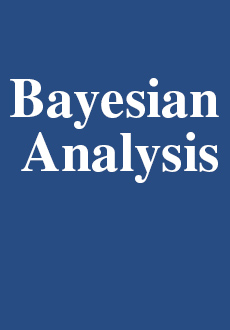Abstract
Full Bayesian methods are useful tools to account for complex data structures in high-throughput data analyses. The Bayesian FDR, which is the posterior proportion of false positives relative to the total number of rejections, has been widely used to measure statistical significance for full Bayesian methods in microarray analyses. However, the Bayesian FDR is sensitive to prior specification and it is incomparable to the resampling-based FDR estimates employed by most frequentist and empirical Bayesian methods. In this paper, we propose a computationally efficient algorithm to evaluate the statistical significance for full Bayesian methods in the resampling-based framework. The resulting predictive Bayesian FDR is robust to prior specifications and it can produce a more accurate estimate of error rate. In addition, the proposed approach provides a general framework for the objective comparison of performance between full Bayesian methods and the other frequentist and empirical Bayes methods in microarray analyses, which has been an unaddressed issue. A simulation study and a real data example are presented.
Citation
Jing Cao. Song Zhang. "Measuring statistical significance for full Bayesian methods in microarray analyses." Bayesian Anal. 5 (2) 413 - 427, June 2010. https://doi.org/10.1214/10-BA608
Information





